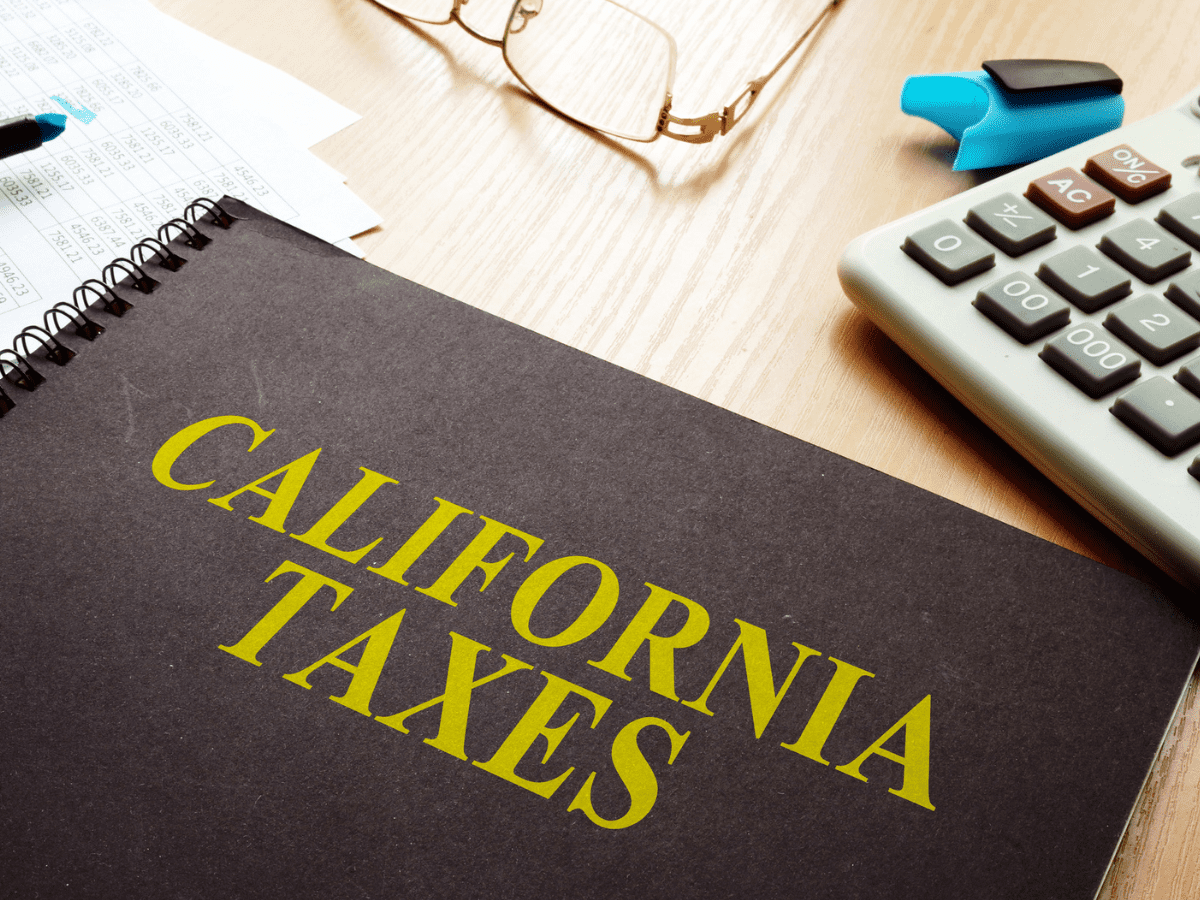California is a magical place known for its endless coastline, breathtaking scenery, and welcoming people. It’s not only the most populous state in America but also the most visited, with approximately 15 million tourists entering the Golden State every year. However, over the past few decades, California has also gained a reputation for having extortionate tax rates.
But are California taxes that bad? While the overall tax burden isn’t as high as in some other states, the rates deter many people and businesses from settling there. California has some of the highest income and sales tax rates in the country, two of the most impactful categories.

California State Tax Rates
California’s economy is enjoying one of its most prosperous periods in recent history and has somehow expanded even further in the past decade. Since California’s sales, income, and corporate taxes are among the highest in the country, this period has brought significant revenue to the state government.
While this has been a positive for the state as a whole, the general tax structure hasn’t been updated for some time. With a lot of economic uncertainty on the horizon, the lack of change could have negative consequences on the state.
California has become a destination for the wealthy. There are many financial obstacles for people and businesses to set up shop in the state. According to Tax Foundation, it ranks number 48 out of 50 states in terms of its commercial tax climate. The foundations are rocky, to say the least.
So, are California taxes really that bad? Let’s take a look at some of the most important tax categories.
California Income Tax
California joins Hawaii, New York, New Jersey, and Oregon in the top five highest-income tax states in the country. There are 10 personal income tax brackets that fall between 1% and 13.3%. However, it’s important to note that the highest rate (13.3%) comes into effect with incomes of $1 million or more per year.
California’s “millionaire tax” is one that brings up much discussion, with many citizens of the opinion that the uber-wealthy should be taxed even more. That said, it’s worth noting that over 50% of personal income taxes in California come from those earning $500,000 or more per year.
Californians making less than $8,932 in taxable income pay the lowest rates. There are also deductions for single people, married couples, heads of household, and widowers.
These dispensations help relieve some of the financial pressures within the state. When you look at income tax objectively, California is expensive mainly for high earners.

California Sales Tax
California has the highest sales tax rate in the U.S. with a statewide rate of 7.25%. Unfortunately for many residents, local jurisdictions can also impose additional district taxes that can increase rates even further (usually by between 0.1% and 1%). Certain localities have more than one district tax, raising prices even higher.
In reality, California sales taxes can climb as high as 10.25% in some cities. However, the average rate, including district taxes, is around 8.68% throughout the state. The sales tax structure has come under a lot of scrutiny, with many locals believing it’s outdated as it’s based on a 20th-century model.
California doesn’t tax certain basic consumables, like groceries, rent, prescription medication, and household utilities. Instead, sales tax is applied mainly to tangible goods like vehicles, furniture, and clothing.
The dated model means that sales tax is now the slowest-growing revenue stream in the state. The main reason for this is that the tax structure prevents the state from collecting revenue from intangible items and services, which are the main types of goods traded in the modern day.
California Property Tax
In comparison to the income and sales taxes, California’s property tax isn’t overly high. As of 2022, the effective rate is 0.74%. While the property is appraised at 100% of market value (current), homeowners can avail of multiple tax breaks within state law. Some of these include:
- Proposition 13: maximum tax on a real estate property is 1% of its current cash value. Property taxes may not increase by over 2% from the previous year.
- Homestead program: property owners who actually live in their homes as the primary residents may also be entitled to a $7,000 reduction in the taxable worth of their homes.
- Postponement program: certain segments of the population are permitted to delay property tax payments for their principal residences. Those eligible include senior citizens, disabled individuals, and the blind.
Other Taxes
Other important tax categories to consider include:
- California Capital Gains Tax: California doesn’t offer tax breaks for long-term earnings on assets (over one year). If you sell a property or asset, your profits are taxed based on your personal income tax rate. Some Californians pay the highest rates of capital gains in the world.
- Excise Taxes: one of the levies that’s truly felt by California residents is the excise tax. Additional fees are attached to a selection of products. For example, fruit, vending machines, cigarettes, and gasoline are heavily taxed, making them extremely expensive when compared with other states.
- Inheritance and Estate Taxes: California’s inheritance and estate taxes are some of the few favorable aspects of the state’s general tax structure. There is no inheritance tax in the state, which is advantageous for those passing on a large estate.

Why California Taxes are So High
California’s tax situation is continually volatile. There are several reasons for this. It’s one of the largest states in the country in terms of land mass and it’s by far the most populated. However, the distribution of wealth is relatively uneven, creating somewhat of an imbalance in terms of tax revenue.
To give this some context, consider the following:
- 1% of taxpayers are responsible for gathering over 50% of personal income tax
- Households that earn $50,000 or less per annum account for 60% of all tax filings
- However, this 60% of tax filings make up just 2% of total tax revenue
California’s Silicon Valley is the global hub of tech. This sector has an enormous impact on tax volatility. The Bay Area (where Silicon Valley is located) contributes around 40% of total personal income tax but accounts for just 20% of California’s population.
Property and sales tax structures also contribute to the state’s volatile tax system. They have not been comprehensively adapted for some time and are far from optimal for the current environment.
Where California Taxes Go
In California, taxes are defined as any charge or levy that gathers funding for the benefit of the state’s people. The taxes are reinvested into important public sectors within the state. The main areas where they are directed are:
- Health and social services
- Education (K-12 and higher education)
- Public safety
- Government administration
- Environment and housing
- Transportation
The Effects of California’s High Taxes
California’s tax rates directly impact several sectors within the state. Some of these negative knock-on effects include:
- Expensive property prices
- Reduction in home ownership
- Difficulties for low-income demographics
- Political unrest
- Further inequality
Legislators are constantly proposing changes to the tax structure. While some adjustments have been made via popular vote, significant structural change hasn’t been made. As the world faces a potential recession in the near future, perhaps a crisis will be the catalyst for change in the California tax system.





